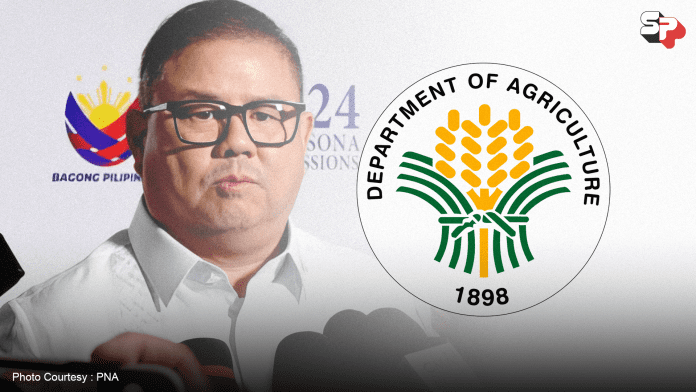MANILA – The Department of Agriculture (DA) on Wednesday announced that the Bureau of Plant Industry (BPI) has blacklisted three agricultural food importers for their alleged involvement in illegal trade.
In a statement, DA Secretary Francisco Tiu Laurel Jr. said importers failed to secure sanitary and phytosanitary import clearances (SPSIC) for various products, including imported milled rice, cashew nuts, coffee, onions, and oranges.
“We will not turn a blind eye to these importers’ illegal practices that undermine government revenues and put public health at risk. To do so would be to abdicate our sworn duty to protect our farmers and the Filipino consumers,” he said.
The DA named the blacklisted importers as LVM Grains Enterprises, Kysse Lishh Consumer Goods Trading, and Golden Rays Consumer Goods Trading.
Five other firms, meanwhile, may be subjected to suspension or revocation of licenses due to the alleged “misdeclaration, illegal importation, and anti-competitive trade practices.”
“We will withhold the identities of these five importers because the cases we filed against them are still pending. Until their cases are resolved, however, they cannot transact with BPI,” BPI director Gerald Glenn Panganiban said.
The Philippine Competition Commission (PCC) is in charge of going after the five firms, he added.
Intensified crackdown
Tiu Laurel has earlier vowed to continue the DA’s intensified crackdown against illegal importers and smugglers with the enactment of the Republic Act No. 12022 or the Anti-Agricultural Economic Sabotage Act.
He said seizure operations and case build-ups for various agricultural commodities allegedly smuggled are ongoing.
“Tuloy-tuloy iyong hulihan ng illicit na sigarilyo. Halos every day may huli ng sigarilyo na ini-smuggle (The crackdown against illicit cigarettes is continuous. There’s an interception of smuggled cigarettes almost every day),” Tiu Laurel said during a Senate committee hearing on Tuesday.
“Onion, marami na tayo nakuha (We’ve seized a lot of onions), tomato, oranges, carrots, then meat in airports, and seafood and rice smugglers.”
To date, he said there is an ongoing case against an alleged onion smuggler nabbed in Mindoro in December 2023, as well as preparation of cases against other intercepted vegetable and meat importers.
Under the Anti-Agricultural Economic Sabotage Act, agricultural smuggling, hoarding, profiteering, cartel, and financing are classified as economic sabotage.
Penalties include life imprisonment and a fine of thrice the value of agricultural products involved.
Acts supporting economic sabotage including transport and storage are also punishable under the law with at least 20 to 30 years imprisonment and a fine of double the value of the involved agricultural commodity. (PNA)

